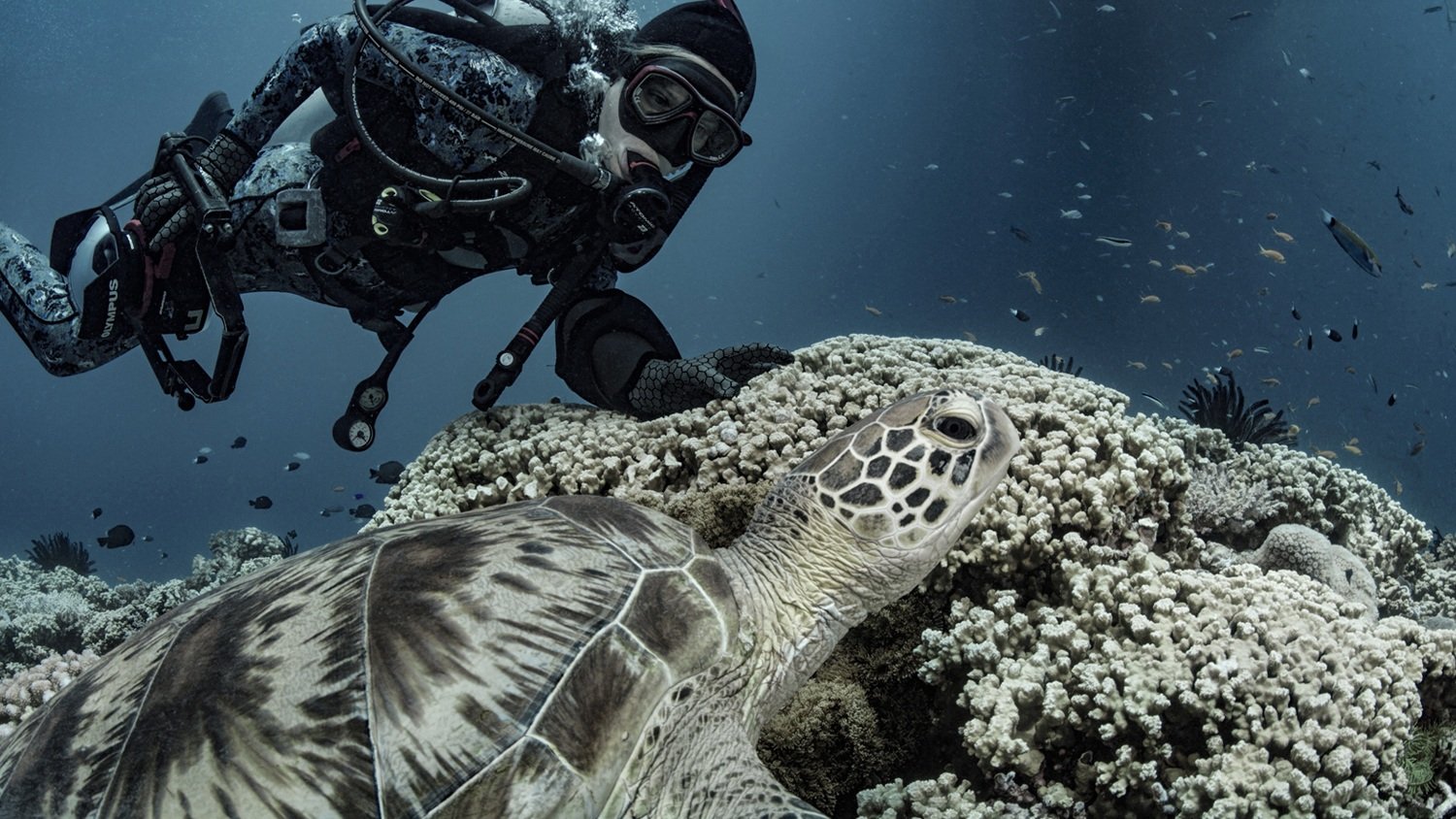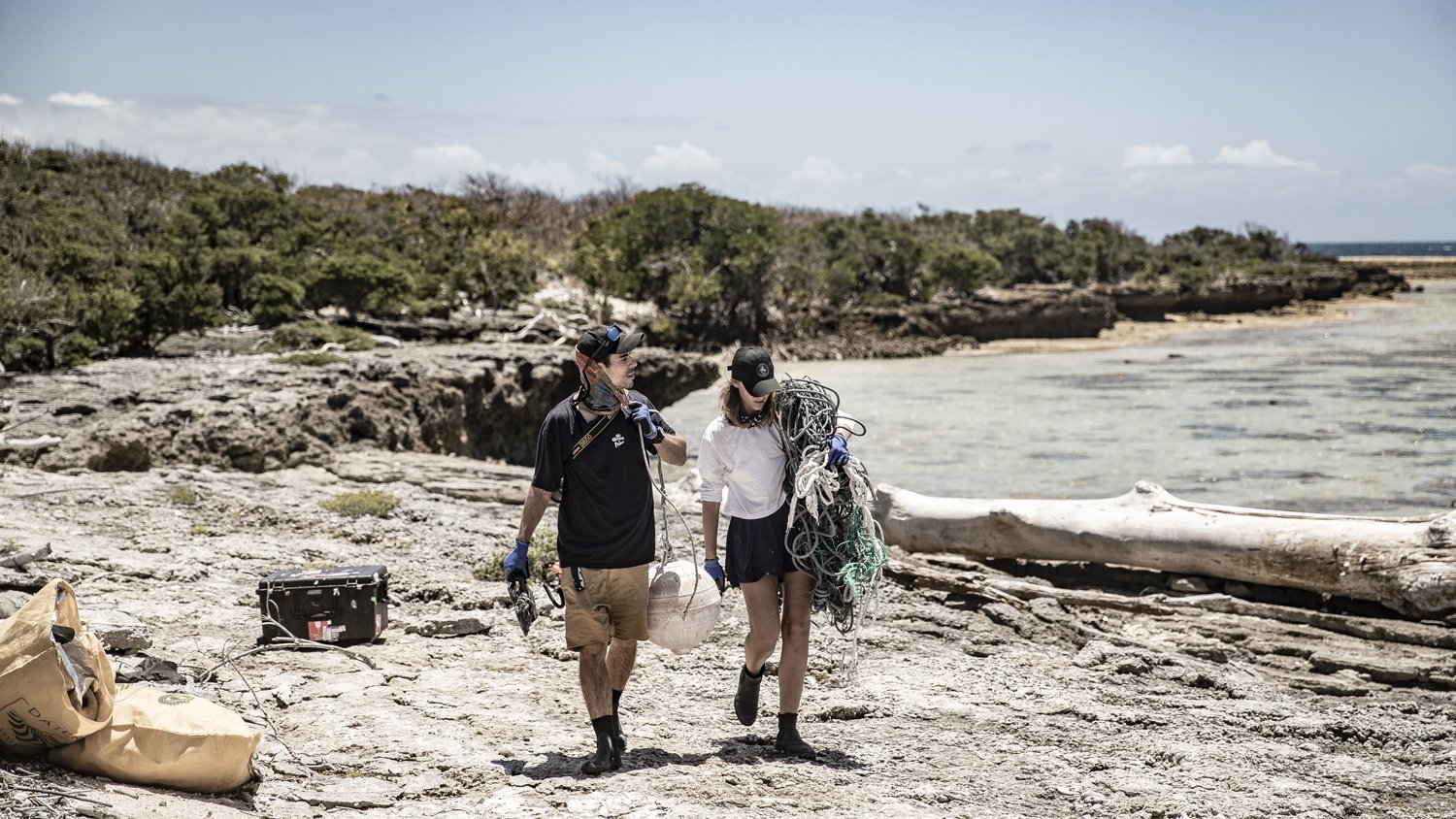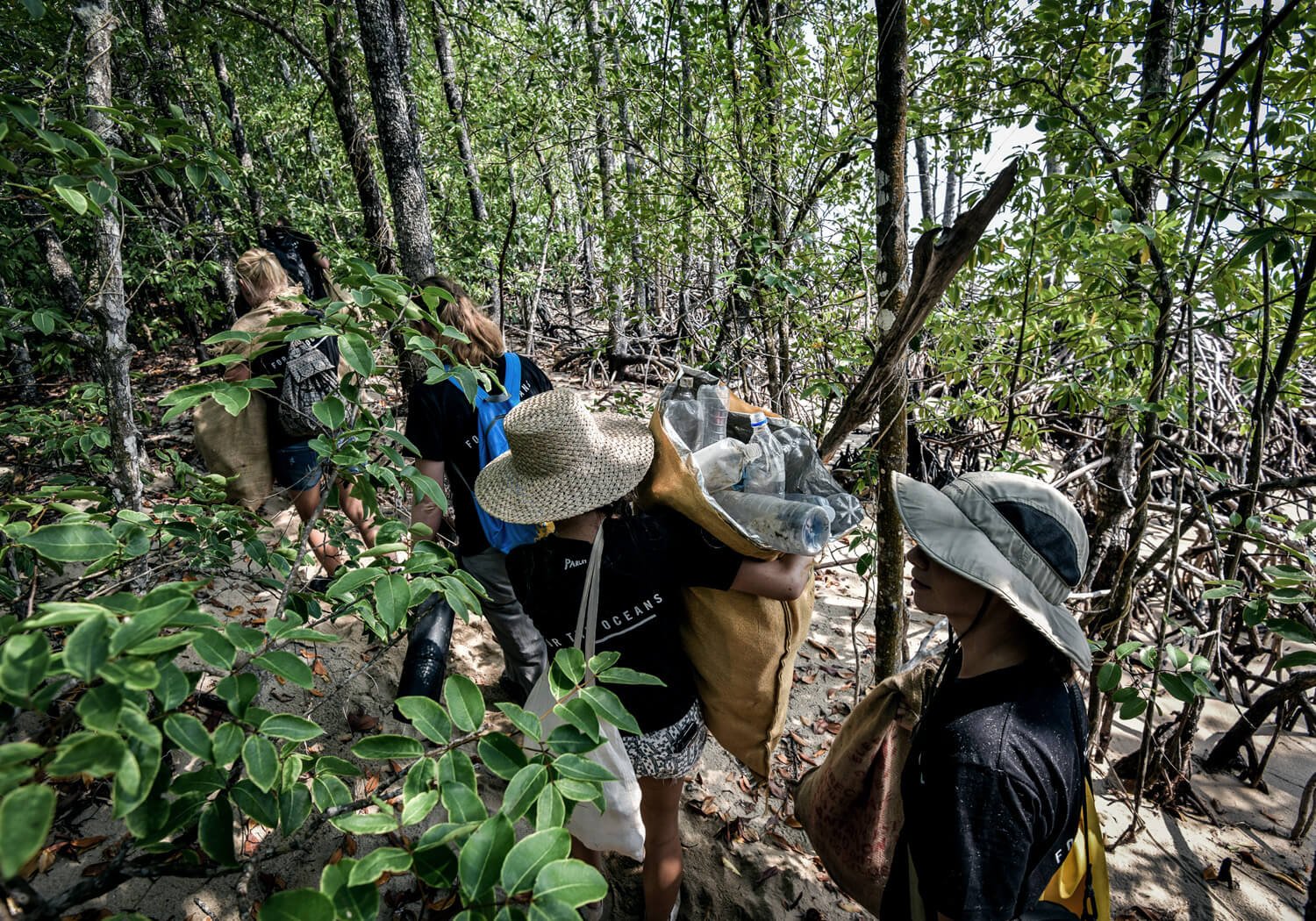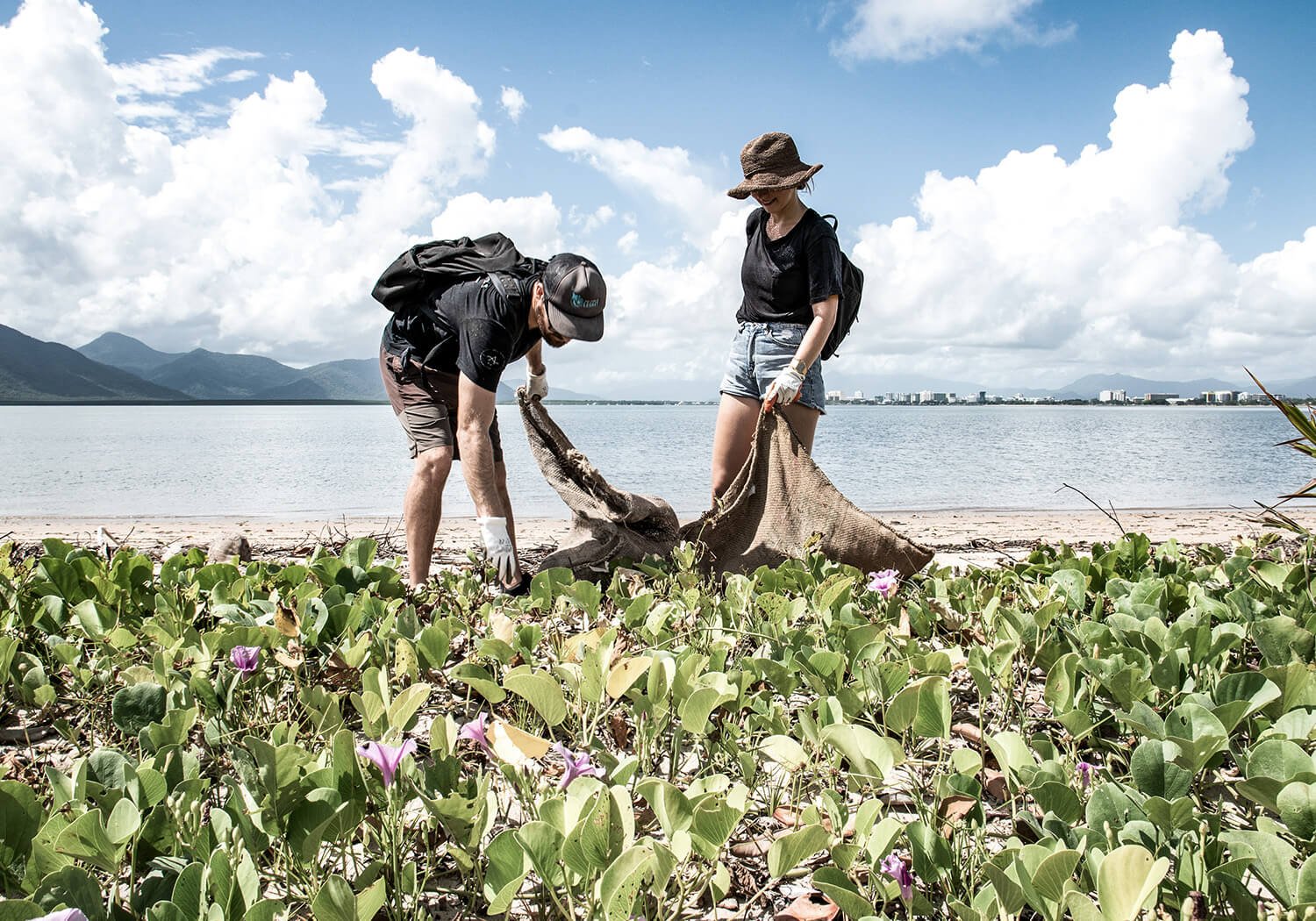Based in Cairns, our Australia team operates along the Great Barrier Reef and beyond to conduct cleanups, conservation and education — working in some of the most remote and fragile ecosystems on the continent.
“If you can see the impact of plastic pollution in the Great Barrier Reef, the largest living reef structure in the world, you realize it has become everyone’s responsibility to let go of this silent killer: plastic.”
Christian Miller – Parley Australia
PROTECTING THE Great BarRIER Reef
The Great Barrier Reef Marine Park was formed to help safeguard a vast area of the reef ecosystem against the rising pressures of human-driven climate change, illegal fishing and related threats. Classified as “Green” (no-take) Marine Park Zones, the northern islands are of extremely high conservation value. They provide critical habitat for populations of marine species, including sea birds and endangered sea turtles which seek refuge on these islands every year to nest. Six of the world’s seven sea turtle species are found within the park, but the Parley crew have found high levels of marine debris and microplastics in protected areas where corals spawn and turtles nest.
WORKING WITH OCEAN COMMUNITIES
As Aboriginal community leader Willie Gordon explains in our video series The Air We Breathe, Australia was pristine for 40,000 years before the arrival of plastic and other pollution. In the Australian episode of our film series, The Air We Breathe, we travel with Parley’s teams to the northern reaches of the country to explore how they’re collaborating with Traditional Custodians who have stewarded the land and ocean for millennia.
REMOTE CLEANUPS
In the far reaches of north Eastern Australia, the vast coastline of Cape York and the remote islands of the Great Barrier Reef Marine Park appear, from a distance, to be pristine. With the support of our partners ING Bank and WLTH, and with state government funding, Parley Australia has organized a series of expeditions to some of the most heavily impacted environments in the country to remove marine debris. In a series of remote expeditions, small groups of dedicated volunteers brave the heat, spending up to six days at a time, collecting plastic waste from these fragile ecosystems
“The Cape Bedford region is one of the most heavily impacted by marine debris in the country,” explains Parley Australia director, Christian Miller. “Finding one to two tons of debris washed up per mile of beach is not uncommon. The southern equatorial current that sweeps across the Pacific Ocean hits this area directly, bringing in debris from all over Asia and even South America. The headland also traps large amounts of marine plastic floating north from Australia's east coast cities.”
CLEANING UP CAIRNS
Closer to Parley Australia HQ, the Parley team leads monthly cleanup events for local volunteers to remove debris from river banks, beaches and mangroves in and around Cairns, preventing the debris from entering the Great Barrier Reef and the Coral Sea. The team also host weekly marine debris sorting events to upcycle and divert as much waste as possible from landfill. Community participation shows there is strong support for solving the plastic problem and creating change.
SUPPORT OUR WORK IN AUSTRALIA
Your support helps us tackle plastic pollution and other threats facing the oceans. All donations go directly to our global teams, helping to fund cleanups, education and infrastructure projects.
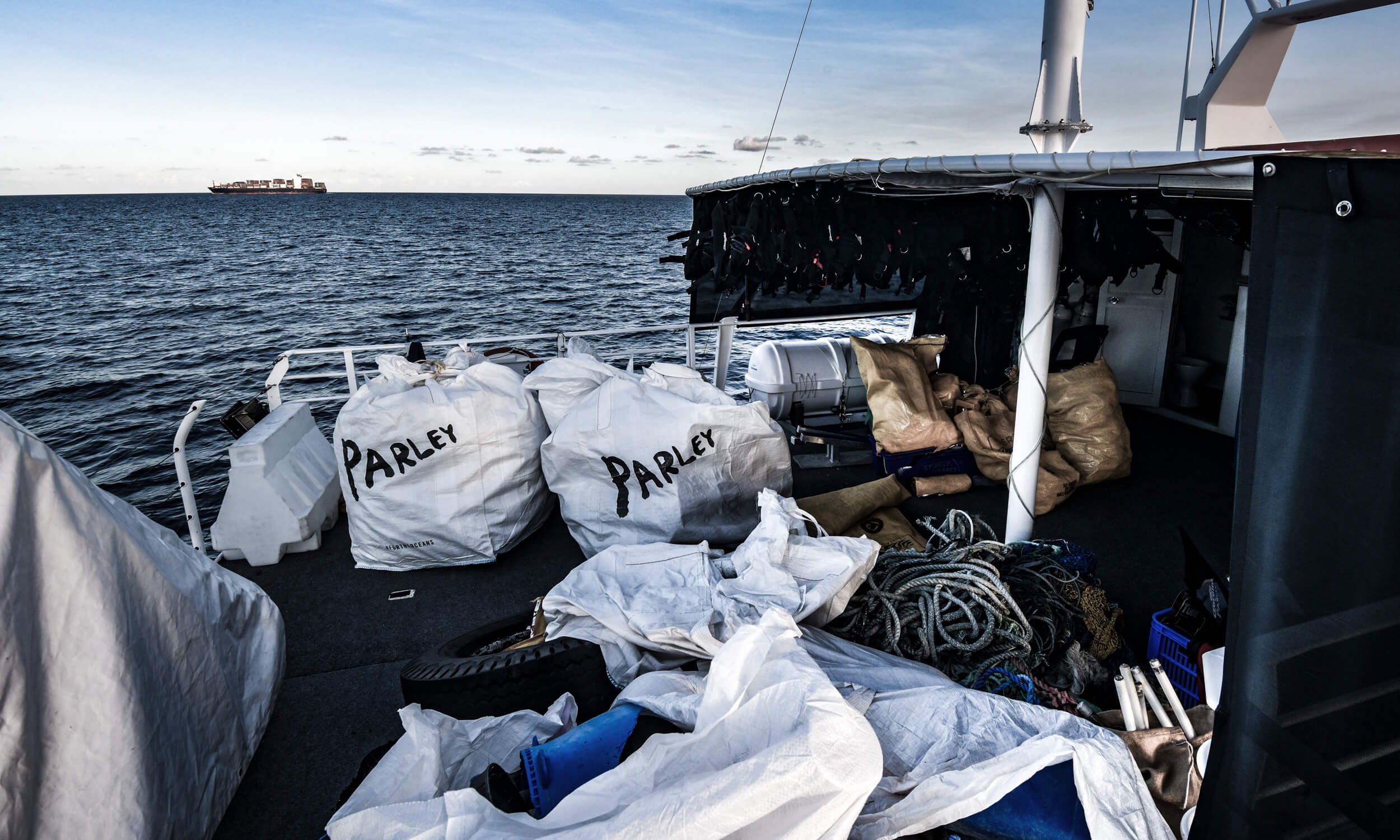
Thank You to ALL our Collaborators IN AUSTRALIA
Cairns Airport
Cairns Boat Hire
Corona
Small World Journeys
Cairns Regional Council
Hope Vale Congress Aboriginal Corporation
Cairns And Far North Environment Centre
Queensland Parks & Wildlife
Ocean Safari
Ocean Rafting
Dawul Wuru Aboriginal Corporation
Oceans 2 Earth Volunteers
No Limit Adventures
Inka Coffee Lounge
FNQ Volunteer Network
PARLEY AUSTRALIA 🇦🇺
440 Sheridan Street
Cairns North
Queensland
4870
Join our Facebook group
The Parley Global Cleanup Network works to protect marine environments from plastic pollution and other threats. Through collaborative cleanups with local businesses and organizations, our teams intercept plastic waste from beaches, remote islands, rivers, mangroves and coastal communities. With cleanups in 30 countries so far and counting, the Network also works on local education, awareness campaigns and government engagement to drive change.
Each country team shares our vision for healthier oceans globally, and works locally to champion the Parley AIR Strategy in their nation. As of 2022, Parley has engaged over 720,000 volunteers globally, conducted more than 21,000 cleanup and education events and intercepted 1.1 million kg of plastic.


